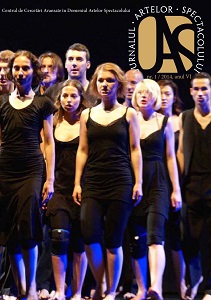Crimă și destin în tragedia antică
Crime and Destiny in Ancient Tragedy
Author(s): Claudia DomnicarSubject(s): Theatre, Dance, Performing Arts, Greek Literature, Sociology of Art, Sociology of Literature
Published by: Editura Universitatii LUCIAN BLAGA din Sibiu
Keywords: tragedy; taboo; crime; Orpheus; fate; flashback; sellers of fate;
Summary/Abstract: Crime represents a trigger that automatically entailed a new series of murders, which were either continued indefinitely, or followed by a suicide. The followers of the slain were obliged to avenge the dead, triggering the emergence of a range of families of dead and their avengers. When a few generations in conflict meet and both sides are equally entitled to seek justice, tragedy appears. The Oracle of Delphi is the most popular merchant of destinies. It has the ability to look into the future, the personal future of a person, but also into the collective future of a people. The Oracle of Delphi might appear to us as an expression of mystical beliefs, full of Orphism, magic and mystery, in fact they were usually callings and duties of the national spirit, or expressed the interests of the ruling classes. The oracle preached the future through the verbalization of facts that occurred, entailing their awakening, and becoming unavoidable. Orpheus’s failure is due to a single act of defying a prohibition, never to look back, which was the equivalent of bringing the dead into the future. By breaking the rule imposed by Persephone, Orpheus turns his head toward the past, crossing not only a space with his look, but a past where death dwells.
Journal: Jurnalul Artelor Spectacolului (JAS)
- Issue Year: 2014
- Issue No: 1
- Page Range: 41-48
- Page Count: 8
- Language: Romanian

